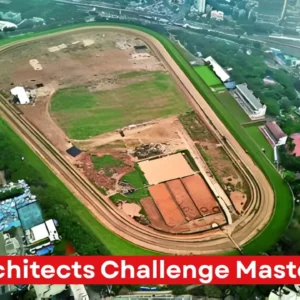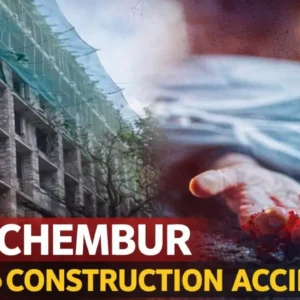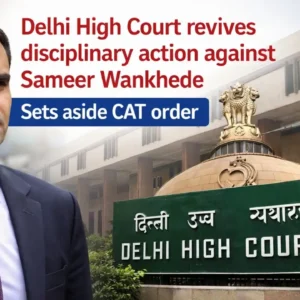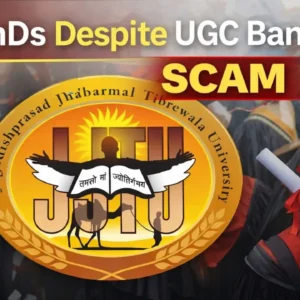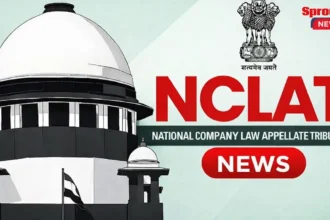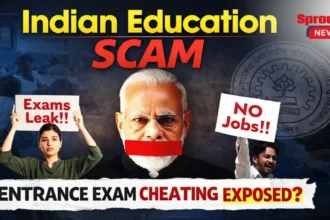Mithi River Desilting Scam
• BMC Officers Booked For Mithi River Desilting Scam
• Rs 65 Cr Fraud Uncovered by Mumbai Police’s Economic Offences Wing (EOW)
- Mithi River Desilting Scam
- • BMC Officers Booked For Mithi River Desilting Scam
- • Rs 65 Cr Fraud Uncovered by Mumbai Police’s Economic Offences Wing (EOW)
- Contract Rate Manipulation Boosted Profits, Not Silt Removal
- Mithi River desilting scam: Forgery and False MoUs Surface in Preliminary SIT Probe
- Senior BMC Engineers and Contractors Named in FIR
- Also Read: Adani’s Dharavi Redevelopment BKC Dream Hits a Wall in Dharavi Showdown.
- Sprouts News Tracks Corruption in Urban Infrastructure Projects
In a major development, Mumbai Police’s Economic Offences Wing (EOW) has registered an FIR in the multi-crore Mithi River desilting scam, alleging financial irregularities and misuse of public funds. The Special Investigation Team (SIT) has named three municipal officials, five contractors, three intermediaries, and two companies in the case. According to the SIT, the scam has caused a loss of Rs 65.54 crore to the Brihanmumbai Municipal Corporation (BMC).
Deputy Commissioner of Police (EOW) Sangramsingh Nishandar confirmed that coordinated raids were conducted across seven locations in Mumbai as part of the investigation. The desilting project, operational for nearly two decades, was initially budgeted at Rs 1,100 crore. Preliminary findings reveal that contracts were distributed among 18 contractors during this period.
Contract Rate Manipulation Boosted Profits, Not Silt Removal
Sprouts News has accessed details from the SIT’s preliminary inquiry, which suggests clear manipulation of tender rates during the 2021–22 desilting cycle. The original approved rate for machine-based silt removal stood at Rs 1,609 per ton. However, inflated rates of Rs 2,193 and Rs 2,366 per ton were reportedly applied later, resulting in an unjustified cost escalation of over Rs 17 crore.
Critically, there was no scientific assessment of the actual silt volume in the riverbed. Instead, estimates provided by sub-engineers were used as the basis for payments and contract allotments—raising questions about oversight and accountability. This estimation method allowed contractors to claim higher bills without verified output, directly contributing to the financial losses.
Mithi River desilting scam: Forgery and False MoUs Surface in Preliminary SIT Probe
As per Sprouts News findings, the SIT also examined nine Memorandums of Understanding (MoUs) signed for dumping the extracted silt. The inquiry revealed that some MoUs were forged—bearing signatures of individuals unrelated to the contracted land. In several cases, landowners denied any agreement or confirmed the signatures weren’t theirs.
Shockingly, one of the MoUs was allegedly signed by a person who had died over 20 years ago. In other instances, documents lacked dates, contractor signatures, or basic verification. These falsified agreements were used to justify payments for dumping activities that either never occurred or took place on unverified lands.
Senior BMC Engineers and Contractors Named in FIR
The accused municipal officers include Assistant Engineer Prashant Ramugade, Deputy Chief Engineer Ganesh Bendre, and retired engineer Taishette. They allegedly colluded with contractors to approve inflated invoices and manipulate verification reports.
Five companies—Designing Infra, Kailash Construction, NA Construction, Nikhil Construction, and JRS Infrastructure—are under scrutiny. Directors Deepak Mohan, Kishore Menon, Jay Joshi, Ketan Kadam, and Bhupendra Purohit have been booked under charges of criminal conspiracy and fraud. Joshi, Kadam, and Purohit are identified as key intermediaries in facilitating the fraudulent deals.
According to the FIR, all parties are accused of conspiring to defraud the municipal corporation of Rs 65.54 crore through falsified documentation, inflated billing, and misuse of public funds.
Also Read: Adani’s Dharavi Redevelopment BKC Dream Hits a Wall in Dharavi Showdown.
Sprouts News Tracks Corruption in Urban Infrastructure Projects
The Mithi River desilting project, once aimed at flood prevention and environmental management, now stands tainted by allegations of corruption and administrative negligence. Sprouts News has been closely following irregularities in Mumbai’s infrastructure contracts and will continue to report on developments in this high-stakes investigation.
As this case unfolds, it raises wider concerns about systemic lapses in municipal project monitoring, particularly in high-budget environmental restoration works. Regulatory reforms, improved verification mechanisms, and independent audits are being called for by civic activists and urban policy experts.





